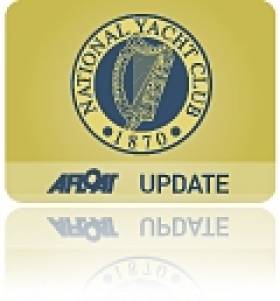Displaying items by tag: Adult sailing
#nyc – National Yacht Club (NYC) Commodore Larry Power says last week's Sports Capital Grant award of €77,000 from the Government will 'enhance the status of the National Yacht Club as a community based sailing club in Dun Laoghaire'.
The Dublin Bay based club, the home of Olympic sailing star Annalise Murphy, will spend the grant on upgrading the NYC's boats and Ribs which will allow the NYC to provide top class facilities for its Junior Section, and an expanded Adult Sail training programme.
According to Power, the adult sailing programme has been singularly successful this year thanks to the vision and commitment of Sailing Secretary, Alan Dooley.
'The adult sailing course is a local based community facility, as it offers the opportunity for adults to both learn and enjoy the sport of sailing', says Power.
The club encourages participants from the local area and the wider community to enrol for this course and have received a very positive and enthusiastic response for all its courses.
The NYC also runs a school transition programme in attracting young adults from the local schools to experience the fun and excitement of sailing.
The most recent NYC sailing initiative is to encourage women on the water to participate in the DBSC Tuesday Club racing series using Club 1720 boats.





























































